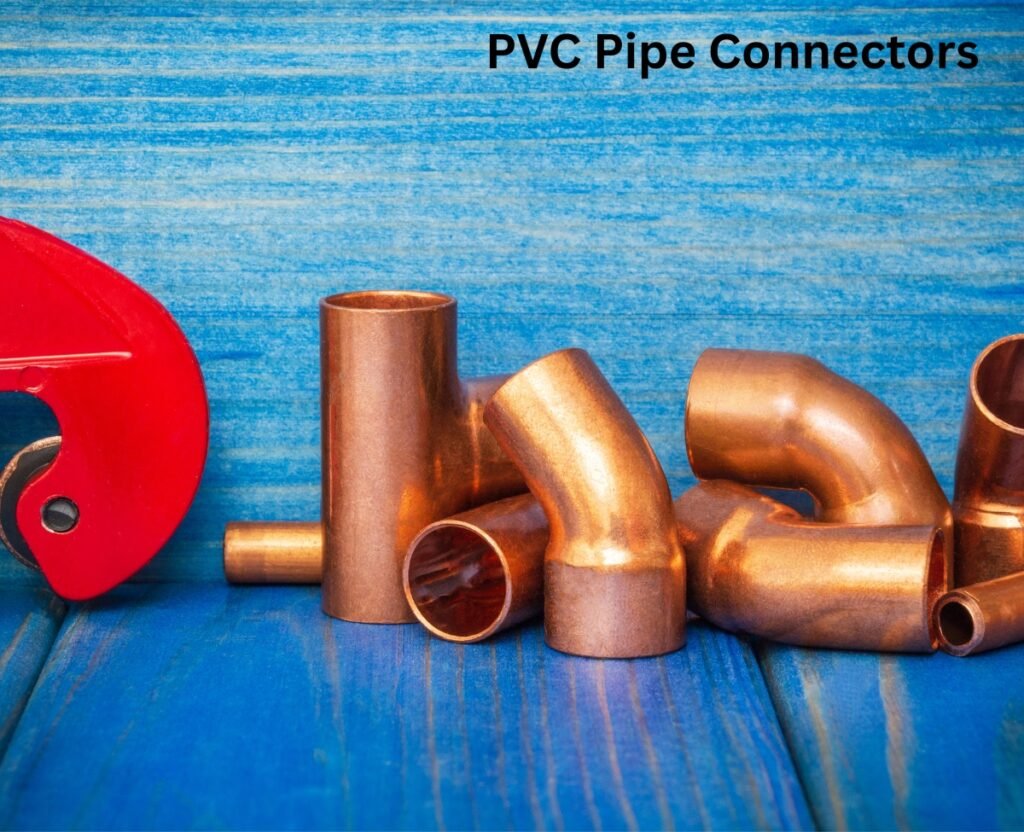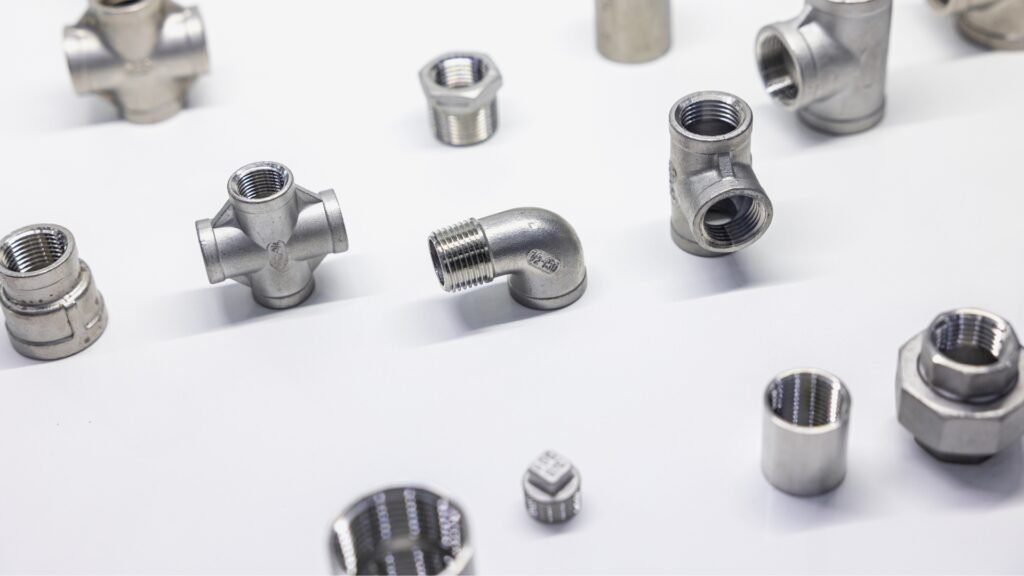PVC pipe connectors join pipes securely, ensuring leak-proof systems for water, gases, or other fluids. Made from durable polyvinyl chloride, these connectors are lightweight, cost-effective, and resistant to corrosion.PVC connectors are more than just fittings; they are problem-solvers. Their adaptability suits countless projects, from home plumbing to creative DIY designs.
Studies and experts highlight the reliability and efficiency of PVC connectors. Research shows their durability outperforms many alternatives, especially in harsh environments. Analysts emphasize their cost-effectiveness and ease of installation. Previous studies also note their resistance to chemicals and pressure, making them ideal for various applications. These findings underline their widespread use across industries.
Choosing the right connector ensures efficiency and longevity. With proper care, these small components deliver big results, proving their value in every system they support. This guide will explain everything you need to know about PVC pipe connectors. You’ll learn about their types, applications, and why they are preferred over other materials. We’ll also explore tips for selecting the right connector and maintaining your system.
What Are PVC Pipe Connectors?
PVC stands for polyvinyl chloride, a type of durable plastic. PVC pipe connectors, also called fittings, are used to connect, extend, or change the direction of PVC pipes. They serve as the backbone of plumbing and piping systems, creating reliable connections for water, gases, or other fluids.
These fittings are commonly manufactured in various shapes and sizes to accommodate specific applications. They are easy to use, making them a popular choice for both professionals and DIY enthusiasts.

Why PVC Connectors Are Widely Used
PVC pipe connectors are preferred for several reasons. They are also cost-effective, making them an economical choice for many projects. Their flexibility is another advantage. PVC connectors are less prone to cracking under pressure. Furthermore, they are flame-resistant, adding a layer of safety against fire hazards.
Types of PVC Pipe Connectors
Each one serves a specific purpose. Here are the most common types:
1. Elbow Connectors
Elbow connectors allow pipes to change direction. They come in two main variants:
- 90-Degree Elbows: For right-angle turns.
- 45-Degree Elbows: For smoother directional changes.
Elbows are essential for plumbing corners or routing around obstacles.
2. Couplings
Couplings connect two straight pipe sections. They are widely used in both permanent and temporary plumbing systems.
3. Adapters
Adapters differ from couplings in function. They allow pipes of varying sizes or types to be joined. For example, you might use a PVC-to-metal adapter when transitioning between materials.
4. Tee Connectors
Tee connectors have three openings. They enable water flow to split into two separate pipes or combine two flows into one. This type is popular for irrigation and drainage systems.
6. Unions
Unions function like couplings but are easier to disassemble. They are used in systems requiring occasional maintenance or adjustments.
7. Wye Connectors
Wye connectors create a “Y” shaped junction. They provide a way to divert fluids at angles, reducing system stress and improving efficiency.
8. Cross Fittings
Cross fittings feature four openings. They are used in complex systems where multiple pipes intersect.
9. Reducers
Reducers connect pipes of different diameters. This is useful for systems where flow rate variations are necessary.
Applications of PVC Pipe Connectors
Below are the most common applications:
Residential Plumbing
PVC fittings are a top choice for home plumbing. They connect pipes that carry water, drain waste, or vent air. Their durability ensures long-term efficiency.
Irrigation Systems
PVC is widely used in agricultural and landscaping systems. Tee fittings, elbows, and couplings create networks for watering crops or lawns.
Industrial Piping
Their resistance to corrosion makes them suitable for harsh environments.
Swimming Pools
They handle pool filters, skimmers, and water outflows effectively.
DIY and Furniture Projects
PVC connectors are popular in creative DIY projects. Many build furniture, like chairs or shelving, using furniture-grade connectors.
Benefits of Choosing PVC Connectors
Durability
PVC connectors last longer than metal alternatives. They resist rust and physical damage, even under harsh conditions.
Cost-Effectiveness
PVC offers excellent performance at a fraction of the cost of other materials. This makes it ideal for budget-conscious projects.
Easy Installation
PVC connectors fit together using simple solvent cement. The tools required for cutting and fitting are minimal.
Safety
Their material is non-toxic and flame-retardant.
Eco-Friendly
Many modern PVC products are recyclable. This reduces environmental impact.
Tips for Selecting the Right PVC Fittings
- Match Pipe Diameter: Ensure the connector size matches your pipe. A mismatch can cause leaks or interruptions.
- Understand System Pressure: If your project involves high water pressure, select fittings rated for such conditions.
- Determine Purpose: Verify the connector type suits the intended function, such as diverting water or reducing flow.
- Check Compatibility: Avoid mixing PVC with incompatible materials like certain metals.
- Consider UV Resistance: Use UV-resistant fittings in outdoor settings to avoid sun-related damage.
How to Maintain PVC Connectors
Maintaining PVC pipe connectors extends their lifespan. Keep these points in mind:
- Regularly inspect for cracks or leaks.
- Avoid over-tightening connectors during installation.
- Prevent rough handling, which can lead to surface wear.
- Clean fittings periodically to remove dirt or debris.
Future of PVC Connectors
Innovations in PVC materials are advancing their performance. Sustainable manufacturing processes are producing eco-friendly fittings. Enhanced additives improve strength and lifespan.
Conclusion
PVC pipe connectors play a vital role in building strong, efficient piping systems. Their durability, versatility, and affordability make them irreplaceable in many industries. By following proper installation and maintenance practices, you’ll enjoy performance that stands the test of time.
PVC pipe connectors are more than just plumbing components; they are building blocks for reliable systems. Whether you’re managing a household project or a commercial setup, these connectors deliver unmatched value. When cared for properly, PVC connectors won’t just meet expectations. They will exceed them, proving that small components can make the biggest difference.

